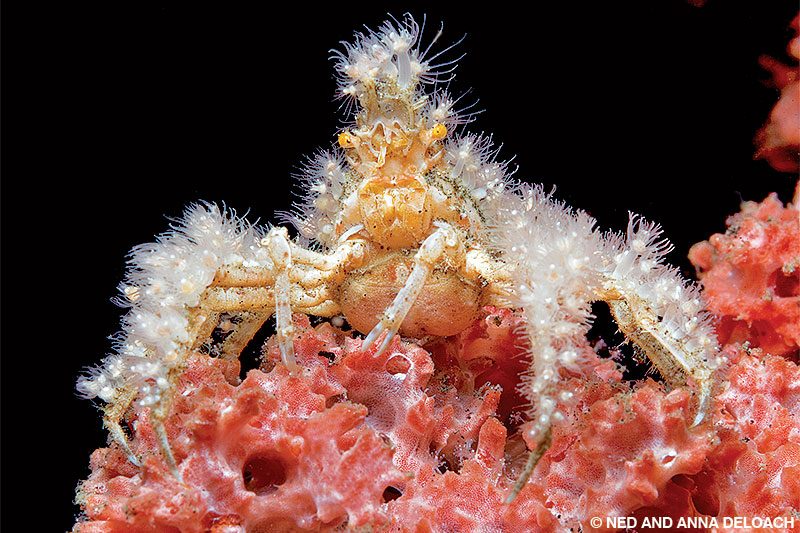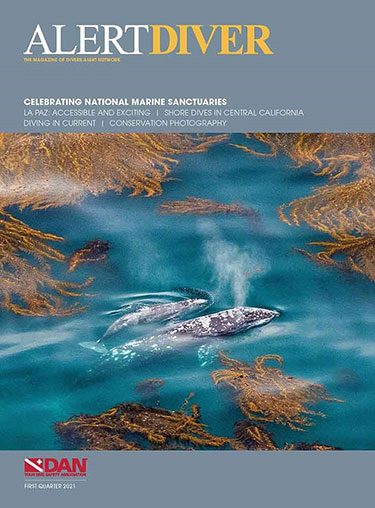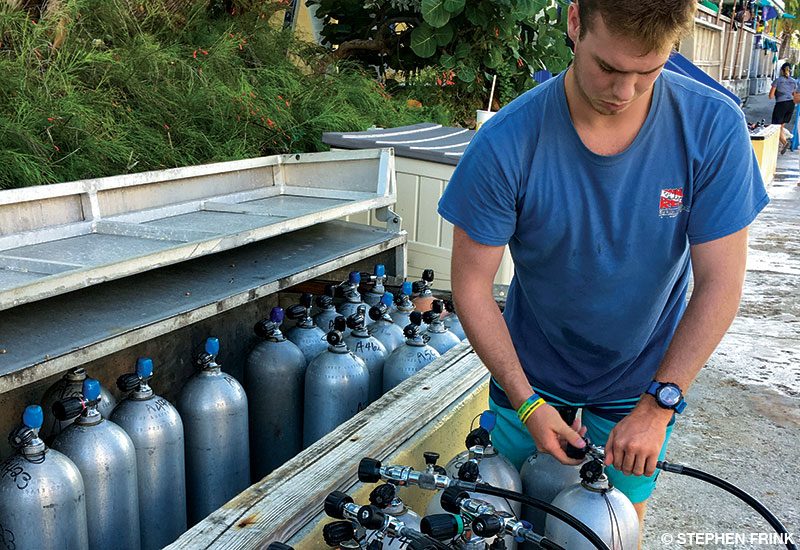Most decorator crabs belong to one of eight families in the superfamily Majoidea, commonly referred to as spider crabs. About 75 percent of the group’s more than 1,100 global species mask their presence by wearing disguises made from living organisms scissored from the landscape. They commonly hijack seaweeds, sponges, tunicates, bryozoans and hydroids. The crabs manipulate the purloined pieces of attire with their mouths before attaching them to one of the many fishhook-shaped bristles arranged in rows on the carapace, rostrum, walking legs and claw arms, depending on the species.
Users must operate cylinders within design parameters, such as filling only to the rated service pressure and having cylinders inspected by formally trained and qualified technicians and requalified by a reputable, recognized test facility. More than 90 percent of ruptures occur during filling, so diligent inspection during this process is critical. Cylinders should operate safely throughout their entire service lives if users adhere to design and operating conditions.
Crocodiles are apex predators, and in the wrong place and time, humans are potential prey. There are exceptions, but most of these wonderful and primitive reptiles won’t squander encountering a potential meal. When swimming in any reptile habitat, know who and what you may encounter, or don’t swim at all. The resident American crocodiles at Jardines de la Reina routinely share their waters with snorkelers and divers, but Jen Hayes didn’t feel the same comfort working in Nile crocodile waters in Botswana.
With nearly 16,000 miles of rugged coastline and more than 40,000 islands and islets, British Columbia’s Howe Sound features fantastic marine life and spectacular coldwater scuba adventures. Stretching 27 miles from its narrow head under lofty mountain peaks at Squamish to its wide-mouth opening into the Strait of Georgia just northwest of Vancouver, Howe Sound is North America’s southernmost fjord. This sea-to-sky corridor crafted by glaciers and perfected by time seems tailor-made for subsea exploration — reef and wreck, rec and tech.
After reading about Howe Sound in Local Diving, discover more of the beauty of North America’s southernmost fjord in this photo gallery.
Mangroves live along subtropical and tropical coastlines. Their upper trunk, branches and leaves grow above the waterline, but an extensive network of roots remain mostly underwater. Dense patches or forests of mangroves are habitats for terrestrial, estuarine and marine species that include invertebrates, fish and many types of seabirds and waterfowl, and they provide shelter as well as feeding and breeding space for 174 marine megafauna species. Mangrove forests provide also protect coastlines against erosion and flooding and help mitigate climate change.
Researchers from the MigraMar consortium take volunteer divers on citizen science expeditions to tag and track pelagic sharks as they migrate through the Eastern Pacific. Scientists use the data to advocate for larger marine protected areas to save sharks from overfishing. Volunteers pay typical liveaboard prices to help researchers defray the high cost of these expeditions, and in return they get to see shark science and conservation up close.
Mooring buoys minimize the impact on the environment and protect fragile coral animals and nonrenewable historical resources from anchor damage. Marine biologist John C. Halas developed the mooring buoy system we know today: an embedment anchor connected to an 18-inch round, white, floating buoy with blue reflective tape around the middle with a yellow polypropylene pick-up line. The mooring buoy system is one of the most visible accomplishments of NOAA’s efforts to provide resource protection while supporting the community’s access for the enjoyment of sanctuary resources.
For DAN member Brian Kakuk, cave diving was originally an outlet for exploration. The mapping, discovery and pushing the limits of physiology were stimulating, but as he began working with scientists he realized that exploration was just the first step in a scientific investigation. He provides research support for scientific discoveries in the underwater caves of the Bahamas and safety and marine support for the movie industry. His Bahamas Caves Research Foundation supports exploration, research and conservation efforts.
DAN’s study about the long-term health implications of a COVID-19 infection for divers — including both scuba and breath-hold to encompass divers and watersports players — will use up to nine online surveys over the next five years to collect information from up to 1,000 adult divers who have confirmed or suspected COVID-19 infection. By evaluating divers’ experiences as they return to the water following COVID-19, DAN researchers hope to provide the dive community with comprehensive guidance about what to expect after recovery.



